Health Questions Every Cat Owner Should Know
MeowWiki has found answers to some of the most frequently asked cat questions. Most of the questions focus on health issues. However, we also answer frequently asked cat questions such as “why do cats eat grass?” and “why does my cat lick me?” Read on to find out the answers to some of the most frequently asked cat questions.
How Long Do Cats Live?
The answer to this question largely depends on whether the cat lives outside (mostly uncared for) or if they are indoor cats that receive check-ups and medical care when needed. On average, cats usually live between 10 and 15 years, which is 56 and 76 in human years, respectively.
A lack of adequate nutrition and exercise—as well as the existence of health conditions such as cancer or FIV—may significantly affect this estimate. Cats that receive vaccinations and are cared for by a qualified veterinarian throughout their lives tend to live longer.
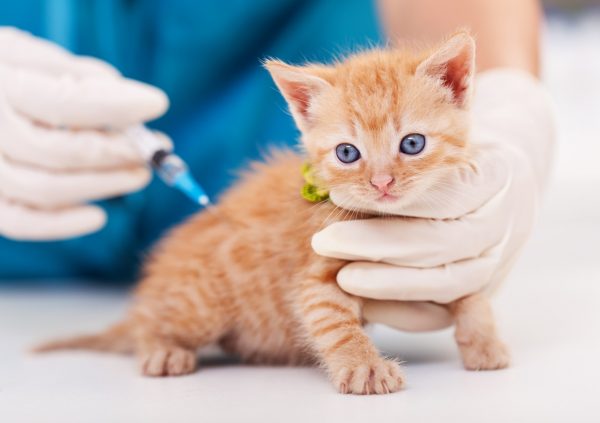
Can Cats Get Ear Mites?
Just like dogs, cats can get ear mites, usually through direct exposure to an animal or vegetation harboring ear mites. Ear mites in cats make themselves known through the cat’s irritated demeanor. Constant head shaking, itching, and scratching of the ears and area around the ears normally point to ear mites being present. These are responses to the ear mites feeding on the cat’s ear lining. To treat ear mites in cats, a vet will usually prescribe a medication and recommend the ears be cleaned routinely to keep the ear mites at bay.
What Causes Constipation in Cats?
Although cat constipation is usually caused by eating disagreeable or unsuitable foods, it can also be brought about by viral infections, diseases, dehydration, or a negative reaction to new medication. Because the cause of constipation in cats may not be clear, it is important to observe if signs of a more serious underlying reason spring up. If the cat is showing pain when trying to defecate or streaks of blood are seen in its stool, a vet should be visited promptly. If severe constipation is left untreated, the intestines may be dangerously compromised.
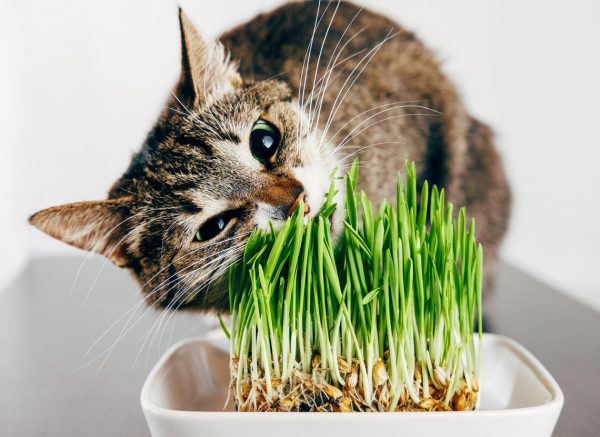
Why Do Cats Eat Grass?
Contrary to what most cat owners may be inclined to believe, a cat’s tendency to chew on blades of grass is actually advantageous and nutritional. Grass blades contain folic acid, which stimulates growth factors and increases oxygen concentration through the production of hemoglobin. Grass also acts as a natural laxative for the cat. The digestive tract can be cleaned out through the consumption of grass. Finally, if a cat is experiencing nausea from bad food, grass can work to cause the cat to throw up and clear the stomach of the bad substance.
Why Does My Cat Lick Me?
Cats are naturally inclined to lick to groom themselves to keep their coats looking clean and shiny. However, sometimes cats can get in the habit of licking their human owners. This is because cats often find comfort in licking themselves and, if they trust you, they may begin to lick you to alleviate built-up stress or anxiety they feel. Cats that wish to show affection or love may choose to lick their owner to showcase the bond they feel. In any case, cat owners can be assured that their cat is licking them because they feel loved and safe.
How Long Do Cats Stay in Heat?
Between 4 and 9 months old, females cats tend to go into heat if they are not spayed. If the cat is not spayed, she will go into heat several times in a year. A female cat could stay in heat up to 3 weeks. However, the average cat only spends about 3 to 7 days in heat.
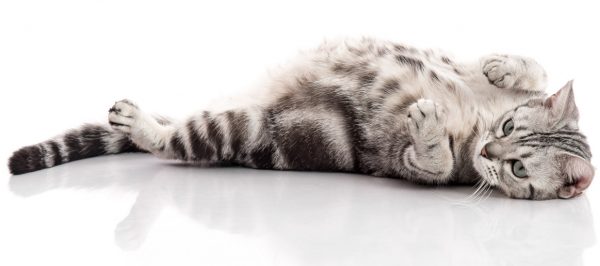
What Is the Gestation Period for Cats?
Once a cat becomes pregnant, the gestation period for fetal development can differ from cat to cat. Just like humans, cats do not have a set number of days they are pregnant. However, most gestation periods last 63 to 67 days. A gestation period longer than average may be up to 72 days. Examination by a vet throughout the cat’s pregnancy will be able to best determine the approximate gestation period.
What Does It Mean When Cats Are Panting?
It is important for cat owners to keep in mind that cats do not pant with the same frequency that dogs do. The only time a cat is normally panting is after intense exercise or anxiety. Overheating may also trigger this behavior. Even so, it can be abnormal if none of these factors are present and the cat continues to pant. Panting at random times by a cat may be indicative of asthma, respiratory issues, or heart failure. A vet should be made aware of the panting if it continues at regular intervals.
Should I Be Worried If My Cat Vomits?
Vomiting in cats is usually due to the ingestion of bad food or a toxic substance. Vomiting can help clear out the stomach if something was eaten that should not have been. However, vomiting should be paid more attention to if it does not stop and continues alongside other symptoms. When vomiting is accompanied by other symptoms (such as weakness, pain, or blood in the vomit), a vet should be seen immediately.
What If My Cat Gets Rabies?
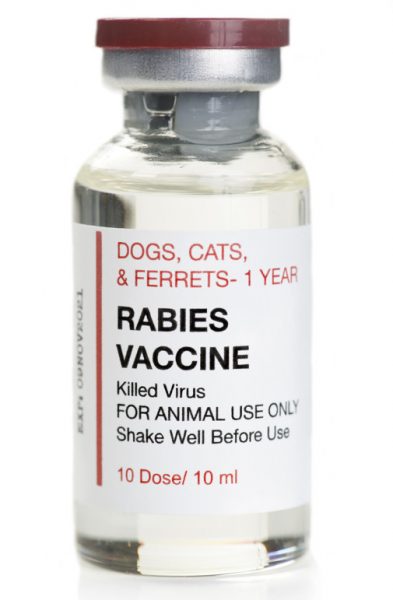
Rabies is a virus that is usually developed through a bite by another animal with rabies. Wild animals like racoons and foxes are frequent carriers of rabies. Although the incubation rate of the rabies varies from case to case, the virus usually spreads rapidly throughout the nerves of the body and is often fatal if not addressed quickly.
Some common rabies symptoms in cats are:
- Seizures
- Hypersalivation
- Lack of coordination
- Paralysis
- Excitability
There are many symptoms that could be from a rabies bite, so it is crucial to the survival of the cat to be taken to a vet if rabies is suspected.
What Is Distemper in Cats?
Contrary to what many deduce from its name, distemper in cats has nothing to do with temperament issues. Distemper refers to feline panleukopenia virus (FPV), which is an infectious, often fatal virus that affects cats. Also called feline parvovirus, distemper works by destroying necessary blood cells in the cat’s body.
Often occurring in the bone marrow and intestinal tract, cat that are pregnant or have poor immune systems and kittens that are between 3 and 6 months old are most likely to contract feline parvo. Common symptoms are weight loss, vomiting, fever, diminished appetite, and dehydration.
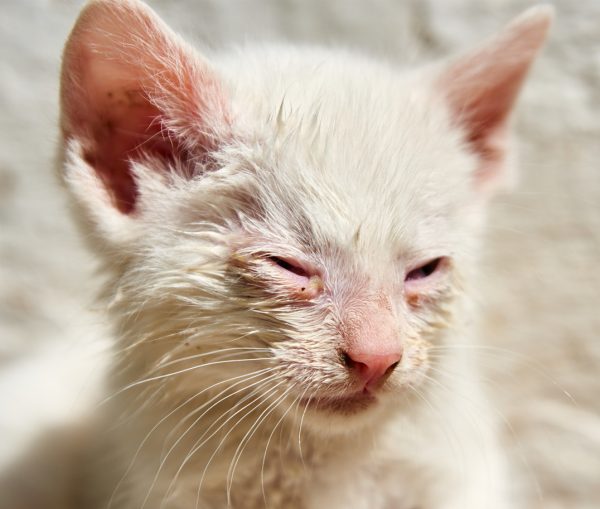
What is Conjunctivitis in Cats?
Conjunctivitis is another word for inflammation of the eye. If a cat’s eye is inflamed or reddened along the cornea or lining of the eyes and discharge is seen, conjunctivitis may be the cause. Allergens in the environment are common causes of eye inflammation. Viral, bacterial, and fungal infections may also cause conjunctivitis. Fortunately, there are a wide array of eye drops and topical ointments for conjunctivitis in cats. If the eye fails to improve even with these interventions, seeing a vet is the best option.
Hopefully the answers to these frequently asked cat questions have been helpful to new and experienced cat owners alike. MeowWiki will continue to provide helpful answers to pet owner’s questions about cats in future articles.



